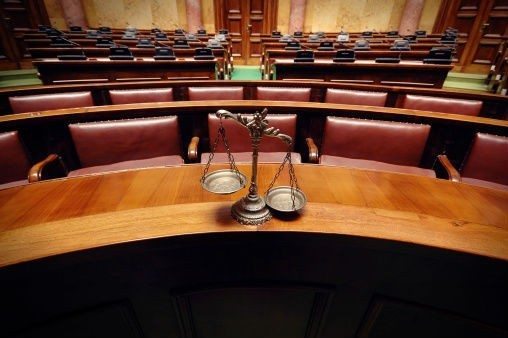 This is the second post in my series on the handling of protective orders during a child custody dispute. My last article provided an overview of topics this series will be addressing and stressed the need to contact an attorney if you find yourself needing, or defending against, a protective order. It is important to understand that such an order is not a “private matter” between two parties and that your custody case will be impacted. In this article I will discuss the process of obtaining a protective order. If you have questions then contact my office today to speak with a lawyer.
This is the second post in my series on the handling of protective orders during a child custody dispute. My last article provided an overview of topics this series will be addressing and stressed the need to contact an attorney if you find yourself needing, or defending against, a protective order. It is important to understand that such an order is not a “private matter” between two parties and that your custody case will be impacted. In this article I will discuss the process of obtaining a protective order. If you have questions then contact my office today to speak with a lawyer.
Virginia basically has three “levels” of protective orders. The first is known as the Emergency Protective Order (EPO) which can be issued 24-hours a day, 365 days a year. Many times these orders are requested by a law enforcement officer following a domestic violence issue. As the name suggests, an EPO is issued when there is an acute threat or a violent act has already taken place. EPOs are meant to last long enough to allow a “cooling off” period between the parties, and to allow the petitioner time to decide if they want to pursue a more permanent order, and short enough so as not to cause any long-term derogatory effects. Under Virginia law, all EPOs expire after 72 hours.
A Preliminary Protective Order (PPO) is a temporary protective order which generally lasts no more than fifteen days. A PPO is generally awarded with little evidence after an ex-parte hearing when the petitioner has requested a permanent order be issued. A PPO is meant to be a temporary until a full hearing can be scheduled. A full hearing is the accused’s opportunity to dispute the allegations against them and move to have the protective order petition denied or dismissed.
Permanent Protective Orders have a great deal of power. They may stipulate that the alleged abuser may not call the victim, must stay away from the victim’s home, place of work, and other places the victim commonly goes. A permanent protective order may include the victim’s family members and children. Furthermore it can grant the victim custody of minor children, order that the abuser pay the victim child support, order the abuser to pay for household costs, order the abuser to pay for any damages to the victim, and can order the abuser to attend AA, NA or anger management meetings. If the abuser and the victim lived together, the order can effectively evict the abuser immediately. The judge may order a permanent protective order to be in effect for up to two years. After that period of time, the petitioner would have to request an extension of the time, in which case a new permanent protective order would be entered at that time with a new expiration date, also limited to two years.
Obviously, a permanent protective order has a great deal of power. For a victim it is important that an attorney attend the hearing following the PPO so that all evidence of abuse can be clearly laid out for a judge. For the person who has had a PPO filed against them it is very important not to ignore the hearing date if one desires to dispute the allegations. If the alleged abuser does not show up for the hearing then a permanent order will likely be put in place. This could lead one to lose custody of their children or forced to move out of their home without having a say. If you wish to file for a protective order, or fight one that has been filed against you, contact counsel who can advocate for your best interest. Call our office today to speak with a family law attorney.

Recent Comments